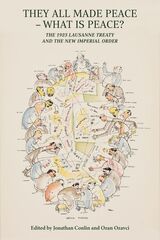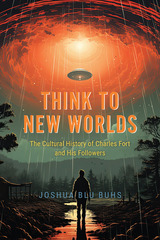7 start with A start with A
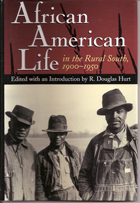

The book remains a valuable and richly illustrated resource for those interested in African American material culture and the history of vernacular gardens. It includes measured drawings and physical inventories of African American gardens in three geographic areas: the low country of South Carolina, the southern piedmont of Georgia, and the black belt of Alabama. The descriptions are enhanced by the author's personal interviews with the gardeners, in which he documents the aesthetic qualities, designs, and purposes of their yards and gardens.
Westmacott traces the evolution of African American yards and gardens and over the last two hundred years and discusses the possible African origins of certain traditions, such as the swept yard. He also notes similarities in attitude between rural southern blacks and whites regarding the importance of the agrarian lifestyle, self-reliance, and private ownership. Despite such similarities, he shows, the patterns and practices in which those beliefs are manifested among African Americans are uniquely their own.
The Author: Richard Westmacott is a professor of environmental design at the University of Georgia and lives in rural Georgia.
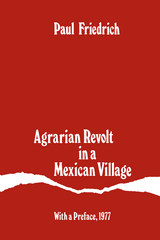
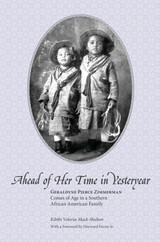
Born into a relatively privileged family, Geraldyne Pierce Zimmerman earned a reputation as a maverick in her lifelong home of Orangeburg, South Carolina, a semirural community where race and class were very much governed by the Jim Crow laws. Educated at Nashville’s Fisk University, Zimmerman returned to Orangeburg to teach school, serve her community, and champion equal rights for African Americans and women.
Kibibi V. Mack-Shelton offers a vivid portrayal of the kind of black family seldom recognized for its role in the development of the African American community after the Civil War. At a time when “separate but equal” usually meant suffering and injustice for the black community, South Carolina families such as the Tatnalls, Pierces, and Zimmermans achieved a level of financial and social success rivaling that of many white families.
Drawing heavily on the oral accounts of Geraldyne Pierce Zimmerman, Mack-Shelton draws the reader into the lives of the African American elite of the early twentieth century. Her captivating narrative style brings to life many complicated topics: how skin color affected interracial interactions and class distinctions within the black community itself, the role of education for women and for African Americans in general, and the ways in which cultural ideas about family and community are simultaneously preserved and transformed over the span of
generations.
Refreshing and engaging, Ahead of Her Time in Yesteryear is a fascinating biography for any reader interested in a new perspective on small-town black culture in the Jim Crow South.
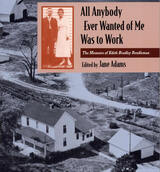
From All Anybody Ever Wanted of Me Was to Work...
"Starting around 1950, people stopped raising chickens, milking cows, and raising hogs. They just buy it at the store, ready to eat. A lot buy a steer and have it processed in Dongola and put it in their freezer. What a difference! Girls have got it so easy now. They don't even know what it was like to start out. And I guess my mother's life, when she started out, was as hard again as mine, because they had to make everything by hand. I don't know if it could get any easier for these girls. But they don't know what it was like, and they never will. Everything is packaged. All you do is go to the store and buy you a package and cook it. Automatic washers and dryers. I'm glad they don't have to work like I did. Very glad."
Edith Bradley Rendleman's story of her life in southern Illinois is remarkable in many ways. Recalling the first half of the twentieth century in great detail, she vividly cites vignettes from her childhood as her family moved from farm to farm until settling in 1909 in the Mississippi bottoms of Wolf Lake. She recounts the lives and times of her family and neighbors during an era gone forever.
Remarkable for the vivid details that evoke the past, Rendleman's account is rare in another respect: memoirs of the time—usually written by people from elite or urban families—often reek of nostalgia. But Rendleman's memoir differs from the norm. Born poor in rural southern Illinois, she tells an unvarnished tale of what it was really like growing up on a tenant farm early this century.
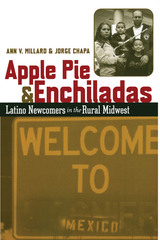
The sudden influx of significant numbers of Latinos to the rural Midwest stems from the recruitment of workers by food processing plants and small factories springing up in rural areas. Mostly they work at back-breaking jobs that local residents are not willing to take because of the low wages and few benefits. The region has become the scene of dramatic change involving major issues facing our country—the intertwining of ethnic differences, prejudice, and poverty; the social impact of a low-wage workforce resulting from corporate transformations; and public policy questions dealing with economic development, taxation, and welfare payments.
In this thorough multidisciplinary study, the authors explore both sides of this ethnic divide and provide the first volume to focus comprehensively on Latinos in the region by linking demographic and qualitative analysis to describe what brings Latinos to the area and how they are being accommodated in their new communities. The fact is that many Midwestern communities would be losing population and facing a dearth of workers if not for Latino newcomers. This finding adds another layer of social and economic complexity to the region's changing place in the global economy. The authors look at how Latinos fit into an already fractured social landscape with tensions among townspeople, farmers, and others. The authors also reveal the optimism that lies in the opposition of many Anglos to ethnic prejudice and racism.
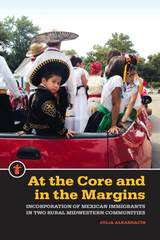
Based on 260 surveys and 47 in-depth interviews, this study combines quantitative and qualitative research to explore the level and characteristics of immigrant incorporation in Beardstown and Monmouth. It assesses the advancement of immigrants in the immigration/ residency/citizenship process, the immigrants’ level of cultural integration (via language, their connectedness with other members of society, and their relationships with neighbors), the degree and characteristics of discrimination against immigrants in these two towns, and the extent to which immigrants participate in different social and political activities and trust government institutions.
Immigrants in new destinations are likely to be poorer, to be less educated, and to have weaker English-language skills than immigrants in traditional destinations. Studying how this population negotiates the obstacles to and opportunities for incorporation is crucial.
READERS
Browse our collection.
PUBLISHERS
See BiblioVault's publisher services.
STUDENT SERVICES
Files for college accessibility offices.
UChicago Accessibility Resources
home | accessibility | search | about | contact us
BiblioVault ® 2001 - 2024
The University of Chicago Press



